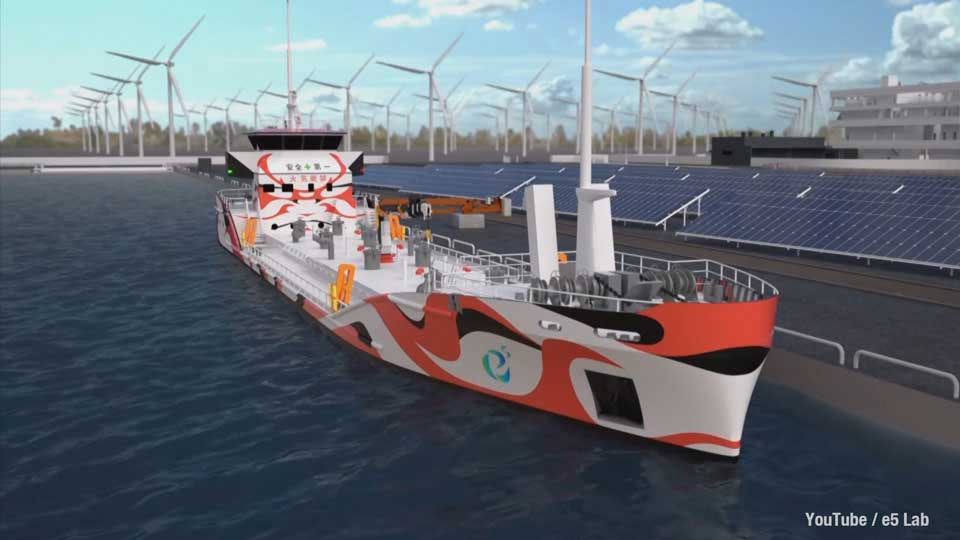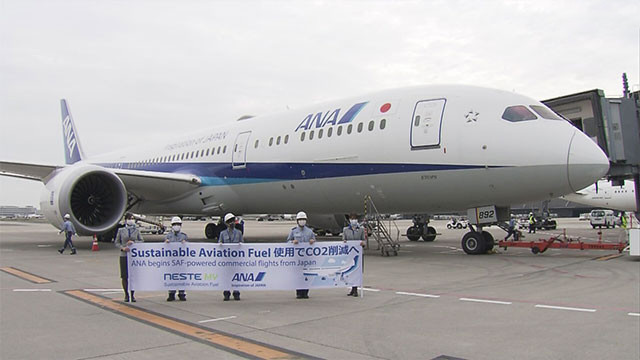Rival carrier Japan Airlines is also looking to a sustainable future. It plans to use biofuel made from household plastics and used clothing. The company says it's the result of a huge investment they made two years ago in new technology by American bioenergy startup Fulcrum, and it hopes to have jets flying with it next year.
One reason aviation companies are pursuing these innovations is that they have to. Demand for air travel is expected to increase, but the International Civil Aviation Organization will put a cap on CO2 emissions for international flights next year, meaning airlines will be required not to exceed their 2019 emissions.
Another reason is a series of domestic and international commitments. In November, Japan's Prime Minster Suga Yoshihide declared that Japan would target net-zero carbon emissions by 2050. And the United Nations took aim at the aviation and shipping industries in its annual Emissions Gap Report. It says that while the Covid-19 pandemic caused a slight dip in global carbon dioxide emissions, that reduction will be short-term, that 2020 is likely to be the hottest year on record, and that the planet is still heading for a catastrophic temperature rise of 3 degrees Celsius this century. The UN report says shipping and aviation currently account for 5% of global greenhouse gas emissions, and roughly two thirds of those emissions are considered international, excluded from the totals reported by each nation.

Four Japanese firms involved in the shipping industry have teamed up to reduce their environmental impact. Asahi Tanker and Mitsui O.S.K. Lines are among the firms that established the "e5 Lab" consortium, which launched an efficiency project back in May. The name refers to five core values: electrification, environment, evolution, efficiency, and economics. One of the goals is to develop the world's first zero-emission electric tanker, powered by lithium-ion batteries. The firms are hoping to have it running commercially in 2022.
Though the electric tanker is expected to cost significantly more than conventional models, Ichida Tomoaki, President of e5 Lab, says it will bring side benefits to the shipping industry.
"Sailors often suffer from extreme heat and noise, but electric vessels can transform the harsh working conditions into something silent, pleasant, and cutting-edge," he says, adding that this could help the industry attract personnel in Japan's tight labor market.
Mitsui O.S.K. Lines has also joined a project to build a vessel powered by wind and hydrogen. The design envisions sails above deck, and hydrogen turbines below to generate energy that can propel the ship even when the wind is low.
These advances come in a year that has been financially devastating for the aviation and shipping industries. But even in this difficult time, industry leaders seem to realize they cannot maintain the status quo as major contributors to climate change.


